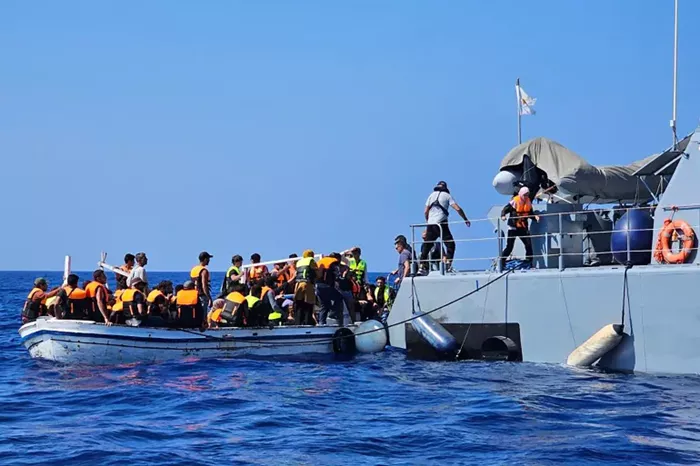Irregular Migration to the EU Drops by 42% in 2024.
Irregular migration into the European Union (EU) decreased by 42% in the first nine months of 2024. The total number of detected migrants fell to 166,000 compared to the same period last year.
The EU border agency, Frontex, released these statistics on Tuesday. The data indicate a reduced flow of migration as several EU countries adopt stricter immigration policies. This shift comes amid pressure from far-right political groups that gained significant ground in the recent EU elections.
According to Frontex, there was a notable decline in asylum seeker crossings on two major migration routes: the Central Mediterranean and the Western Balkans. In the first three quarters of 2024, nearly 17,000 people entered the EU through the Western Balkans, a decrease of 79% from the previous year. Approximately 47,700 individuals crossed the EU border via the Central Mediterranean, representing a 64% drop.
In contrast, crossings via the Western African route doubled, with over 30,600 entries recorded in the first nine months of the year. The most significant increase was seen at the EU’s eastern land borders, especially in Poland, where nearly 13,200 crossings were detected. This marks a 192% rise.
The decline in irregular migration coincides with the rise of populist and nationalist parties in Europe, which have called for stricter immigration measures. This trend was evident in the strong performance of these parties during the summer EU elections.
On Tuesday, 16 migrants boarded an Italian navy ship bound for Albania. This marked the first such trip under Italian Prime Minister Giorgia Meloni’s controversial plan to process asylum claims outside the EU. Meloni’s government has also reached an agreement with Tunisia to provide aid in exchange for increased efforts to prevent refugees from crossing the Mediterranean to Italy.
In a related development, European Commission President Ursula von der Leyen announced plans to strengthen legislation aimed at expediting the removal of individuals who do not have the right to remain in the EU. In a letter to EU leaders, von der Leyen stated, “The EU’s migration policy can only be sustainable if those who do not have the right to stay are effectively returned.” She noted that only about 20% of third-country nationals ordered to leave have actually returned.
The proposed law will clarify the obligations of returnees and streamline the return process. Last week, Poland and the Czech Republic called for stricter EU restrictions than those outlined in the bloc’s new migration and asylum pact, which is set to take effect in 2026. These rules, adopted in May, aim to distribute the responsibility for hosting asylum seekers across the 27 EU countries and speed up the deportation of individuals deemed ineligible to stay.
Additionally, the far-right governments of Hungary and the Netherlands have requested exemptions from migration obligations. Poland’s center-right government recently shocked many by announcing plans to temporarily suspend the right to claim asylum. Warsaw cited security risks due to the increased flow of migrants across its eastern border, which it accuses Belarus of encouraging as part of a hybrid warfare strategy.
Related topics:
- Trump’s Racist Comments on Immigrants Conceal Eugenics Ideology
- Evansville Leaders Condemn Anti-Immigrant Hate Speech
- If Trump Loses Again, Republicans Will Likely Wrongly Blame Immigrants


